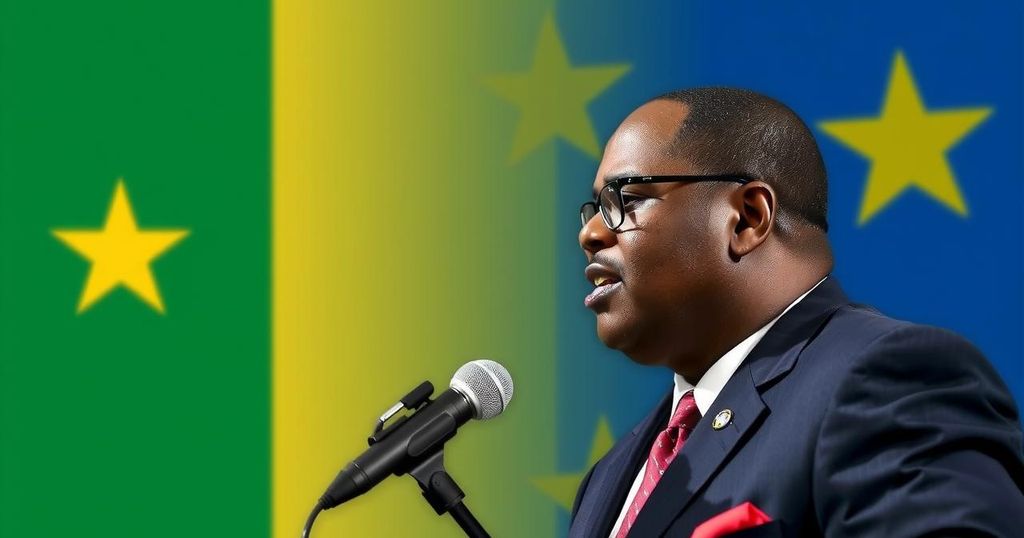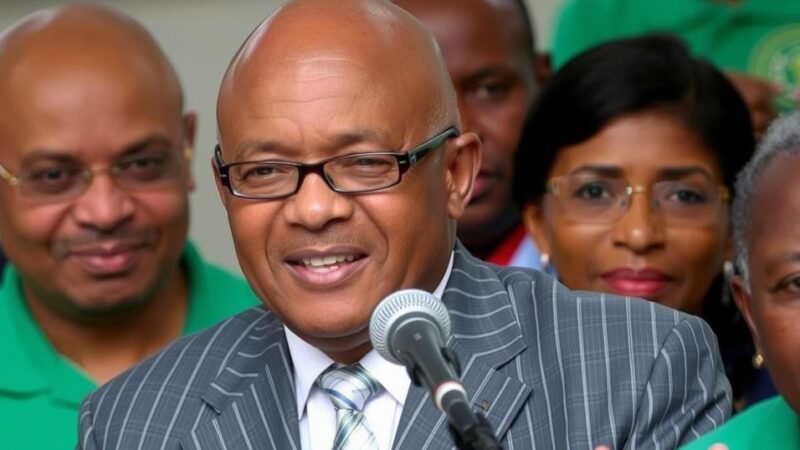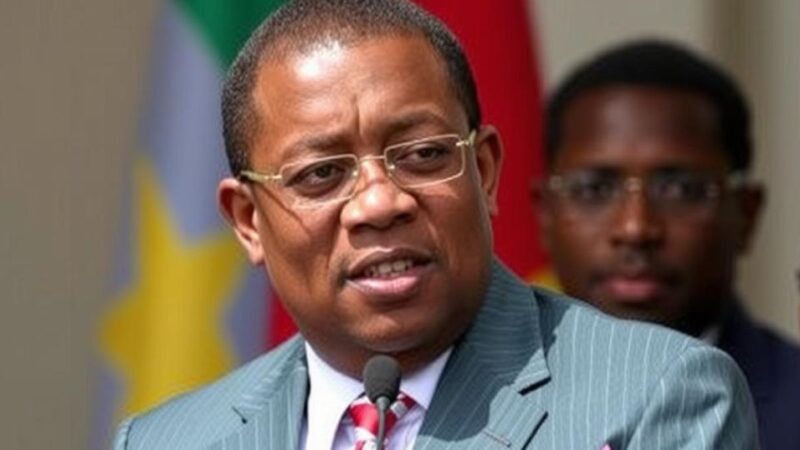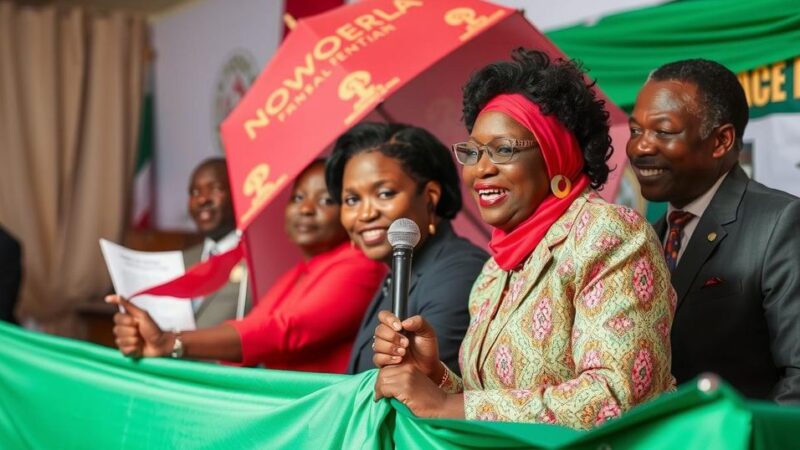The Democratic Republic of Congo is considering a constitutional review that might enable President Felix Tshisekedi to extend his tenure. Tshisekedi advocates for a new constitution reflecting Congolese nationalism, while opposition leaders, fearing a consolidation of power, vehemently reject any reforms. Historical precedents show that previous attempts at constitutional reform faced significant opposition, underscoring the fraught political dynamics in the country.
The Democratic Republic of Congo is contemplating a constitutional review, raising concerns among opposition leaders that this initiative may facilitate President Felix Tshisekedi’s extension of tenure. During his recent visit to Kisangani in the northeast, President Tshisekedi advocated for a “worthy” constitution that reflects Congolese nationalism. He announced plans to establish a national commission composed of Congolese citizens from various disciplines to draft a new constitution that aligns with local realities, as he believes the current one, created in 2006 under President Joseph Kabila, does not appropriately represent Congolese society. The proposed review echoes previous attempts to reform the constitution, which met fierce resistance from opposition, including Félix Tshisekedi himself, when he was part of the opposition during Kabila’s governance. Amidst this renewed discussion, Augustin Kabuya, interim chairperson of Tshisekedi’s UDPS party, articulated the necessity for constitutional evolution due to its apparent limitations in public governance. While the UDPS has not explicitly proposed changes to presidential term limits, some party leaders argue that the president effectively receives less than his lawful five-year mandate due to procedural delays in government establishment post-election. Tshisekedi himself asserted that any alteration to term limits would be determined by the people and not unilaterally by the president. Nonetheless, opposition figures such as Moïse Katumbi and Martin Fayulu have denounced these constitutional reform intentions, deeming them a means for Tshisekedi and his associates to secure enduring power. They argue that the current constitution does not hinder the government’s functionality and have vowed to oppose any attempts for revision vehemently. The Catholic Church’s leadership has also cautioned against potential instability stemming from such constitutional changes, emphasizing that political leaders should prioritize national interests over personal ambitions. Overall, the political climate in the DRC remains charged as the constitution’s future hangs in the balance, with the opposition standing firmly against any proposals for change.
The Democratic Republic of Congo’s constitution has been a contentious subject since its inception in 2006. Established following a referendum, the constitution aimed to end cycles of violence and ensure democratic governance through elections. However, proposals for constitutional reform often evoke strong reactions from opposition groups, who fear such changes may prolong incumbency for ruling leaders. The current discussions emerge against this historical backdrop, highlighting the delicate balance of power in Congolese politics and the persistent apprehensions regarding leaders’ intentions within the political landscape. President Tshisekedi’s recent pronouncements amplify the tensions, as opposition figures recall past attempts made under previous leadership, which they thwarted under the pretext of preserving democracy.
In conclusion, the unfolding discussions surrounding potential constitutional reforms in the Democratic Republic of Congo present a crucial juncture in the nation’s political discourse. President Tshisekedi seeks a constitution that he believes reflects the Congolese identity and improves governance efficiency. However, the opposition remains resolutely opposed, interpreting these efforts as a veiled attempt by Tshisekedi to extend his political power indefinitely. As internal and external stakeholders voice their positions, the outcome of these proposed reforms will significantly impact the country’s stability and governance.
Original Source: www.theeastafrican.co.ke







